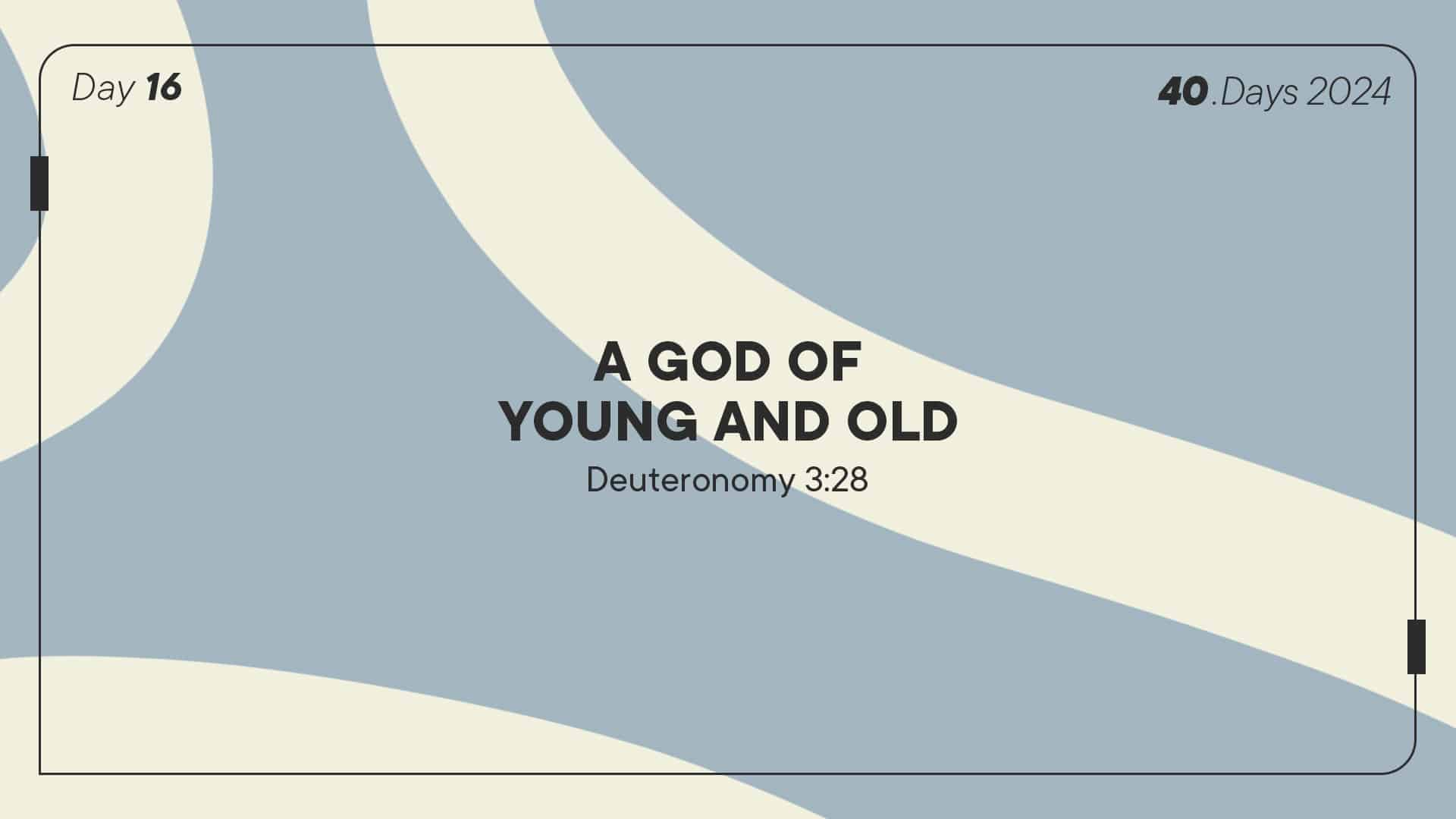
“For God so loved the world that he gave his one and only Son, that whoever believes in him shall not perish but have eternal life.” John 3:16 illustrates just how much God loves us and wants us to avoid hell and accept His rescue plan, says lay leader Andrew Thomas. Photo by Dan Meyers on Unsplash.
This is a great question and perhaps one of the biggest issues in conversations between Christians and those outside the faith.
And it isn’t surprising, because let’s face it – even for some Christians the idea of hell is not just unpalatable but positively medieval, something we hoped the church had left behind. For others, it’s a concept we might associate with the God of the Old Testament, but definitely not with Jesus, or anything in the New Testament.
But the shocker is that Jesus talks about it more than anyone else in the whole Bible. In fact He talked about it a mind-boggling 70 times, and in the most explicit terms.
To be honest, you can’t fully understand Jesus, and appreciate His message, without grasping what He says about Hell. It’s a core part of the story of the Gospel, how Jesus came to save us from hell.
And just as in a classic painting, it’s often the dark background which makes the foreground shine with such clarity. There is a sense in which it is only as we plumb the depths of our fallen human nature, and realise the horror of our destiny, that the wonder of God’s love and grace appears in its amazing glory. Only then do we see God’s grace as it really is.
But to answer this question, I think the best way of doing that is to challenge all of its assumptions. For example, who on earth is truly “good”, and who does the “sending” – is it God, or could it be us? And finally, are God’s “love” and “hell” really incompatible?”
So let’s take a look at the first of these assumptions.
1. Who is truly “good”?
A survey was recently conducted of the spiritual beliefs of American adolescents, and what it found is not surprising. Almost all of them – whether they were Christian, of another faith or atheist – considered themselves to be basically good. I say not surprising, because I think that would reflect the beliefs of not just adolescents but most people. The respondents also had this vague confidence that if there is a heaven, they will be going there, because they are basically “good”.
The Bible has a very different view of who is “good”.
Good to them basically means you’re not Hitler, you’re not Stalin, you’re not Mao, you’re not a serial killer. You try not to be a jerk, you don’t kick dogs. You’re generous with your time with friends and family. That kind of idea.
Now if that’s how you define “good” then of course it sounds outrageous that God would send a good person to hell. But the problem is, the Bible has a very different view of who is “good”.
In Mark 10: 18, Jesus famously said that “No one is good except God alone”. He said that no one is righteous, even the most apparently normal and well-behaved person.
Why did He say that?
All we have to do is look at the history of mankind, and it’s clear. Something is desperately broken with human beings. We might think that “evil” is committed by just a few deranged individuals. But it isn’t just the Hitler’s and the Stalins and the Pol Pots that were evil. Masses of human beings under the right circumstances at the right times, were also involved in great acts of evil.
Under Hitler’s regime for example, millions of seemingly normal people – who were probably nice to their families and friends – were complicit in the murder of six million Jews, and many millions of others besides. The same would be true of the evil of Stalin and Pol Pot and Chairman Mao, or of the system of slavery in America. Mass evil isn’t done just by individual leaders – sometimes whole nations are complicit in it.
We probably think we would have behaved differently if we were living in those times. But Jesus knows us infinitely better than we do, and He knows that we would be just the same. And that’s because we are corrupt in the very heart of our being.
In Matthew 5:21-28 Jesus said “You have heard that it was said to the people long ago, ‘You shall not murder, and anyone who murders will be subject to judgment.’ But I tell you that anyone who is angry with a brother or sister will be subject to judgment. … And anyone who looks at a woman lustfully has already committed adultery with her in his heart.”
“I made those eyes, hands, feet, imagination … And you are accountable to Me for what you do with them all.”
Then in Matthew 5:29-30, He said “If your right eye causes you to stumble, gouge it out and throw it away. It is better for you to lose one part of your body than for your whole body to be thrown into hell. And if your right hand causes you to stumble, cut it off and throw it away. It is better for you to lose one part of your body than for your whole body to go into hell.”
Notice how Jesus is talking about how our sinful actions will lead to hell?
And how do we react to His words? Why, we naturally want to rebel! We say “Listen, nobody tells me what I do with my hands. I am independent. I do my own thing. Nobody tells me what I do with my feet. They are mine. I go where I like. No one tells me what I do with my eyes. I look at what I want”. And so on.
But God responds: “No, I made those eyes. I made those hands. I made those feet. I also made your imagination. And you are accountable to Me for what you do with them all.”
What we do with our minds and our bodies is God’s business. And if we’re honest, we’ll admit that in all these areas, we are deeply sinful.
So the Bible has a very different view of who is “good”. Which brings me to the second assumption:
2. Who does the “sending” – is it God, or could it be us?
You might be thinking, Okay, so nobody is truly good. But even so, why would God send anybody to hell? Part of the answer, is that it isn’t so much that God sends us to hell, as we send ourselves. Although some verses in the Bible indicate that God might ‘send’ some people to hell as an act of judgment, it would be truer to say we send ourselves there.
God doesn’t want anyone to go to hell.
And why do I say this? Well we just need to remind ourselves that God doesn’t want anyone to go to hell. In 1 Timothy 2:4, Paul said “God wants all people to be saved and to come to a knowledge of the truth.” And there are so many verses that underline this fact.
However, God also gave us the gift of free will, knowing that some would reject Him, and use this freedom not for good, but for evil. He gave us this freedom so that we would have the ability to choose to love Him ourselves. Without this freedom, we would be like robots, not human beings.
Now the minute God grants us freedom, He had to allow the possibility that we would abuse that freedom. That’s the nature of freedom, that we have the free will to decide whether we will obey God or not, love God or not.
God also gave us the gift of free will, knowing that some would reject Him.
I can say yes to the love of God, and thereby find joy and peace and my own deepest purpose. Or I can say no to God’s love and His righteous commands. I can resist them.
And that resistance to God’s love ultimately causes us pain. And at the level of the soul, the deepest level, this pain is like a torment.
So in one sense, although Hell is a place which the Bible uses colourful language to describe, Hell is also a state of mind and soul in relation to God. It is that final and definitive refusal to accept God’s love and submit to His will, uttered from the depths of one’s soul.
Sometimes this is a deliberate choice, to explicitly reject God. At other times, it’s not that we explicitly reject God – in fact outwardly we might be quite religious. It’s that we do not obey God’s commands, not realising that in so doing, we are choosing an eternal destiny.
In Luke 16:19-31 Jesus told a parable called “The Rich Man and Lazarus” that reveals a lot about his view of hell, and how we can send ourselves there, even unknowingly. The rich man was probably a religious Jew who thought he was going to heaven. But he ignored God’s commands to love his neighbour Lazarus, and chose instead to spend all his great wealth on himself. In so doing he chose a life trajectory that landed him up in hell. And when he arrived, there was no contrition for the way he treated Lazarus, no repentance. So in that sense, he sent himself to hell.
CS Lewis wrote: “All that are in hell choose it …The door to Hell is always locked from the inside”.
And many of us are like the rich man. We make sinful decisions that send us to hell, thinking our wealth or respectability will protect us on the other side.
James 1:14-15 says “Each person is tempted when they are dragged away by their own evil desire and enticed. Then, after desire has conceived, it gives birth to sin; and sin, when it is full-grown, gives birth to death.” What James is saying here, is that the choices we make today determine our destiny tomorrow, and in eternity.
In his classic book, The Great Divorce, CS Lewis wrote: “All that are in hell choose it …The door to Hell is always locked from the inside”. By which he meant that it’s not so much that God angrily throws us into hell and locks us in, it’s people themselves who, by their refusal to love and obey God, lock themselves away from the Divine Love.
That’s what hell is – locking yourself out of the love of God. Which brings me to the third assumption:
3. Are God’s love and hell really incompatible?
This is another great question. If God is so loving – and the Bible says that He is – then surely He wouldn’t send anyone to hell, would He? I mean, how can the loving Jesus, the gentle Jesus, the caring Jesus, the merciful Jesus, the One who said, “love your enemies and pray for those who persecute you” … how can this Jesus we thought we knew, say so much about hell, using such ugly language? Why did He, the most loving man that ever lived, say such things?
“He cannot love murder, injustice, oppression, selfishness, pride, lying, slander, cheating or immorality.”
Why? Because of His love. He is warning us of our destiny if we do not listen to Him and carry on our sinful trajectory. And that is why He came. Because unless He came to warn us of this, and to die in our place, the destiny that awaits men and women is beyond thinking, it is beyond bearing.
But you might be wondering: “Okay I get that God loves us, but in that case, why can’t He just forgive us, if God can do anything? Can’t he just announce that we’re forgiven?” Well, yes, God can do anything, but He can’t do anything that would be inconsistent with his moral nature. God is holy, and the righteous judge of the universe. Therefore, He can’t be indifferent to sin.
And just because God is loving, doesn’t mean that He loves everything. There are some things that God cannot love. He cannot love murder, or injustice, or oppression, or selfishness, or pride, or lying, or slander, or cheating, or immorality. In fact, He hates them. If God is loving, then truly He should hate all these things. It wouldn’t be very loving of God to look at someone like a victim of child abuse and say: “Well, I’m a loving God so I will turn a blind eye.” So God is loving – but He cannot love everything.
Because our loving God hates evil things, His nature demands that He does something about it.
And because our loving God hates evil things, His nature demands that He does something about it. And for those who are victims of injustice or oppression or violence, this is surely good news. In fact we know it’s good news, because we all have an inbuilt sense of justice.
So the fact that people who abuse others and never acknowledge it will one day be punished for their crimes, should be good news to us. So in that sense we can understand that hell, as horrible as it is, can be a good thing, and not as incompatible with God’s love as we might think.
So much for the assumptions behind the question. Perhaps now we may understand why a place like hell exists, and that it isn’t incompatible with a God of love. And also, how we can end up there if we choose to reject God and His ways.
Okay but what then? How can we avoid this terrifying reality? Who can rescue us?
Who is our rescuer?
Going to hell is not what God wants for us. He detests hell even more than we do, and figured out a rescue plan and a rescuer, so that we wouldn’t have to go there. And what He really wants – what He really, really wants – is that we should all turn to Him and accept His free gift of Life.
What He really wants is that we should all turn to Him and accept His free gift of Life.
In John 3:16 it says, “For God so loved the world that he gave his one and only Son, that whoever believes in him shall not perish but have eternal life.”
This one verse illustrates just how much God loves us and wants us to avoid hell and accept His rescue plan. It also shows us who our rescuer is. It’s Jesus.
Romans 5:6-8 says: “You see, at just the right time, when we were still powerless, Christ died for the ungodly. Very rarely will anyone die for a righteous person … But God demonstrates his own love for us in this: While we were still sinners, Christ died for us.”
The wonderful truth is this: There is no one who has ever lived, or whoever will live, for whom Christ did not suffer and die. There’s no one that God isn’t actively calling to be with Him. Jesus is our rescuer. He is our escape from hell.
And this is the message of the whole Bible – from cover to cover. God loves us more than we will ever know, and sent His son to die for us, so that we could we would not perish, but live with Him in heaven. The reason Jesus came into the world was to bear the Hell we deserve, and take it on His shoulders. This is how much he loves us. He came in order that we might be saved from this awful destiny, and rescue us for the new creation.
There is no one who has ever lived, or whoever will live, for whom Christ did not suffer and die.
So in conclusion, let me ask you: Do you know where you are headed, in life? Do you know if you’re headed to heaven, or to hell? Have you chosen to follow Jesus, our rescuer? If not, do you want to choose to follow Him now?
As you are reading this article, God is actively calling you to be in relationship with Him. All you have to do is to accept Him. All you need to do is reach out and accept the gift. The gift of His forgiveness. The gift of His life. The gift of His love.
Because if you put your trust in Jesus, His promise is that you will not be judged by God when you die, and you will receive even now eternal life, in union with Him.
Prayer to accept God’s love
If you haven’t yet taken this step of believing in Jesus, and you would like to do that right now, I invite you to say this simple prayer:
“Dear Lord Jesus, I am so sorry for what my hands, my feet, my eyes have done in Your world. Please forgive me. Thank You so much for bearing all my sin on the cross, and offering me Your salvation. I give You my heart now. Please help me to turn away from everything in my life, which the Bible says is wrong, and follow You. Amen.”
This article was adapted from a sermon by Andrew Thomas, given at St George’s Church in March 2021. The author would also like to credit input from Rico Tice, Bishop Barron and Sean McDowell.
RELATED STORIES:
“I was knocking on the door of hell”: Ex-supermodel finds freedom from a life of drugs and pain
Pulled back from the brink of death, he was given a second chance
We are an independent, non-profit organisation that relies on the generosity of our readers, such as yourself, to continue serving the kingdom. Every dollar donated goes directly back into our editorial coverage.
Would you consider partnering with us in our kingdom work by supporting us financially, either as a one-off donation, or a recurring pledge?
Support Salt&Light




